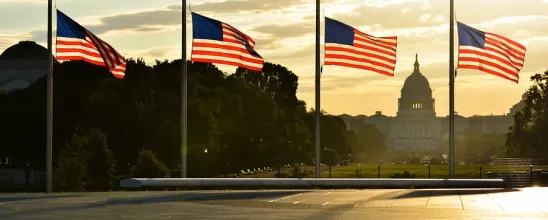“Restoring the Constitution’s checks and balances to the Trump administration.” That’s what Democratic leader Nancy Pelosi promised in her speech after the elections.
Congressional oversight and investigations thrive in divided government, and Democratic leaders are already promising a new wave of oversight.
While the press and pundits are mostly focused on the likely political investigations – access to the President’s tax returns or investigations of the Trump Organization’s business activities – the House’s investigative agenda is much broader, and it has direct implications for many of our clients.
For example, when we last had a Democratic House and a Republican President, in 2007 and 2008, Congress conducted large investigations of drug companies’ sales and marketing practices, technology companies’ sharing of customer data, and the financial industry’s corporate practices. A decade later, these three sectors – pharmaceutical, financial services, and technology – remain prime targets for congressional scrutiny, along with energy, government contractors, and most other highly regulated industries.
Moreover, a lot has changed in the last decade to increase the congressional investigations risks.
First, more committees now possess dedicated and experienced oversight staff than ever before, and several committees have dedicated oversight and investigations subcommittees. We expect oversight activities from all the major committees next year.
Second, in recent years, several committees have modified their rules to give the chairmen unilateral authority to issue subpoenas – a practice that we expect to continue next year. Even though many investigations do not result in subpoenas, the potent threat of a subpoena – issued without committee vote or sometimes even notice – makes it much harder for companies to resist congressional demands.
Third, congressional investigations, which always ebb and flow depending on the political environment, have become much more consistent and a mainstay of today’s legislative process.
That trend has been driven, in part, by legislative gridlock, as Members turn to oversight and investigations as a way to affect policy, and private sector practices, that they cannot reach through legislation. With the Senate remaining in Republican control, House Members will have a greater incentive to pursue policy goals through investigations.
In predicting next year’s investigations, history is often a good guide.
We expect the incoming Democratic chairmen to pursue issues that they have investigated, or sought to investigate, in the past, such as Congressman Cummings’ focus on drug prices, or Congresswoman Waters’ focus on consumer protections in the financial industry.
Next year, however, will also bring a new environment for Democratic leaders, where Democratic investigators will look for investigations that present a political trifecta:
- One, highlight policies and practices they find objectionable.
- Two, protect average Americans from harm.
- And three, pin the blame on lax regulatory oversight by the administration.
Often, companies are caught in the crossfire of these types of investigations – when they are being used essentially as a weapon by which investigators go after the administration.
So, in addition to all the companies and industries that have faced congressional scrutiny in the past and are likely to face it again next year, we expect an additional focus on companies and industries that have benefited from polices adopted in the first two years of the Trump administration, including:
- Companies that received notably large benefits from tax reform.
- Companies that benefited from Trump administration actions that loosened regulations or expanded permissible corporate activity.
- Companies that benefited significantly from contracts, licenses, or other approvals from the Trump administration, including mergers.
- Companies that have executives that have connections to the Trump administration, such as executives that participated in the White House’s formal and informal policy groups, vocal supporters, or those that attended the various meetings the President held with industry representatives.
- Companies with former employees who took positions in the executive branch, particularly positions with responsibility for regulating their former employers.
Briefly, a word on the Senate.
We expect the Senate to continue with the same approach of recent years.
The defeat of Senator Claire McCaskill, one of the Senate’s most aggressive investigators of recent years, will likely have some effects. But even with her no longer serving as ranking on the Governmental Affairs Committee, that Committee’s Permanent Subcommittee on Investigations will continue to conduct deep and substantive investigations as it has in the past.
Senator Grassley has a strong history of pursuing significant investigations, and if he returns to the Senate Finance Committee, he will have the additional jurisdictional hook to investigate federal spending and tax issues.
Finally, looking over the horizon, we can also expect that we will see individual Senators engaging in oversight and pursuing their own individual investigations, particularly Senators who may have an interest in making news and raising their profiles in advance of the 2020 presidential contest.




 />i
/>i

